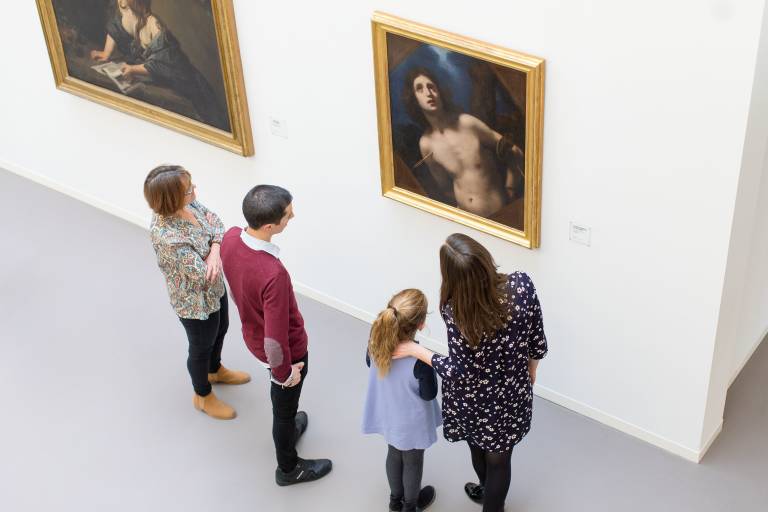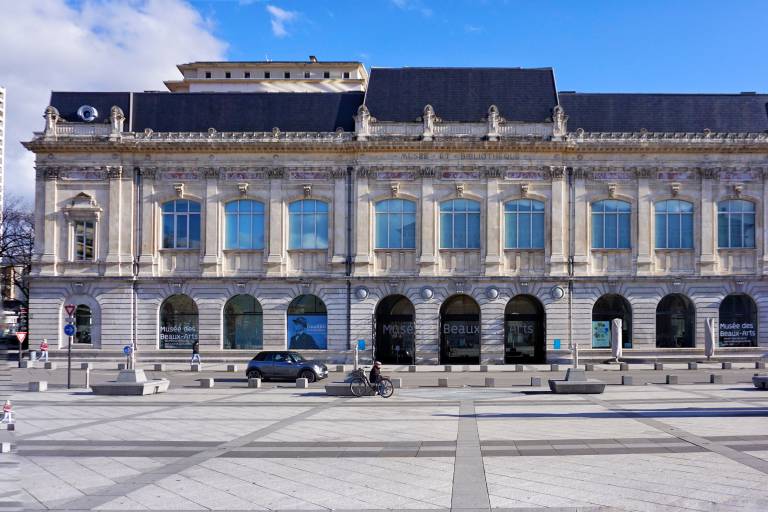Museum of Fine Arts


Description
The renovated Musée des Beaux Arts contains a collection largely composed of Italian works from the end of the Middle Ages to the beginning of the 20th century, but it also displays works that help us to understand the history of art in the Savoy region.
The Grenette building
This corn exchange, previously known as a ‘grenette’, was located along the Medieval ramparts of the ducal city and surrounded by the Leysse, the river deviating from the Lac du Bourget. Closed down in the 19th century, it was repurposed as a voting booth for the union of the Savoie region and France, before being transformed into a museum-library in the 1880s. Renovated between 2009 and 2011, the unique architectural character of this building was restored, exploiting the diversity of the three rooms: the pillars under vaults on the ground floor, the metallic, Eiffel Tower-like aspect of the first floor, and the large windows of the second floor.
Permanent collections
Early art
The 15th century is considered to be Savoie’s Golden Age. Combining both northern (Flanders, Germany, Switzerland) and Italian influences, these extremely rare wooden paintings demonstrate an exceptional artistic quality, marked with various archaisms.
The Renaissance and Mannerism
A remarkable collection of Italian works dating from the 15th and 16th centuries, with Sienna and Florence being particularly well-represented. The religious and allegorical scenes are carefully composed, with bright colours and clear, acidic tones.
Portraits
A wonderful collection of Italian, Flemish and Savoyard portraits, dating from the 14th to the 18th centuries. The social status of the subject can be determined by looking at whether they are alone or in a group. Genre paintings bring together various characters.
The 17th century
The heart of the Italian collection, the intense, formal quality of the Ecole de Naples is well-documented, which increases the dramatic atmosphere in the paintings. The collection also includes work from Rome, Florence and Venice.
Piedmont in the 18th century
Ecole de Turin, with its background in the unique history of the Savoie and the special relationship between Chambéry and Piedmont, produced some the most outstanding Baroque and neo-Classic works from Piedmont.
L'Ecole savoyarde
The Ecole de Peinture de Chambéry produced various artists, who were inspired by workshops in Geneva, Turin et Paris during the 19th century and at the beginning of the 20th century. They painted landscapes, with the constantly-changing countryside being their main source of inspiration.
Furthermore, the museum offers a year-round programme of temporary exhibitions and cultural events.
Pricing
Reduced price: from 2.50 €
Student: 0 €.
Free entry for children under 26, disabled people.
Additional information
Languages spoken
Facilities
Pet
Pet allowed
Pet not allowed
